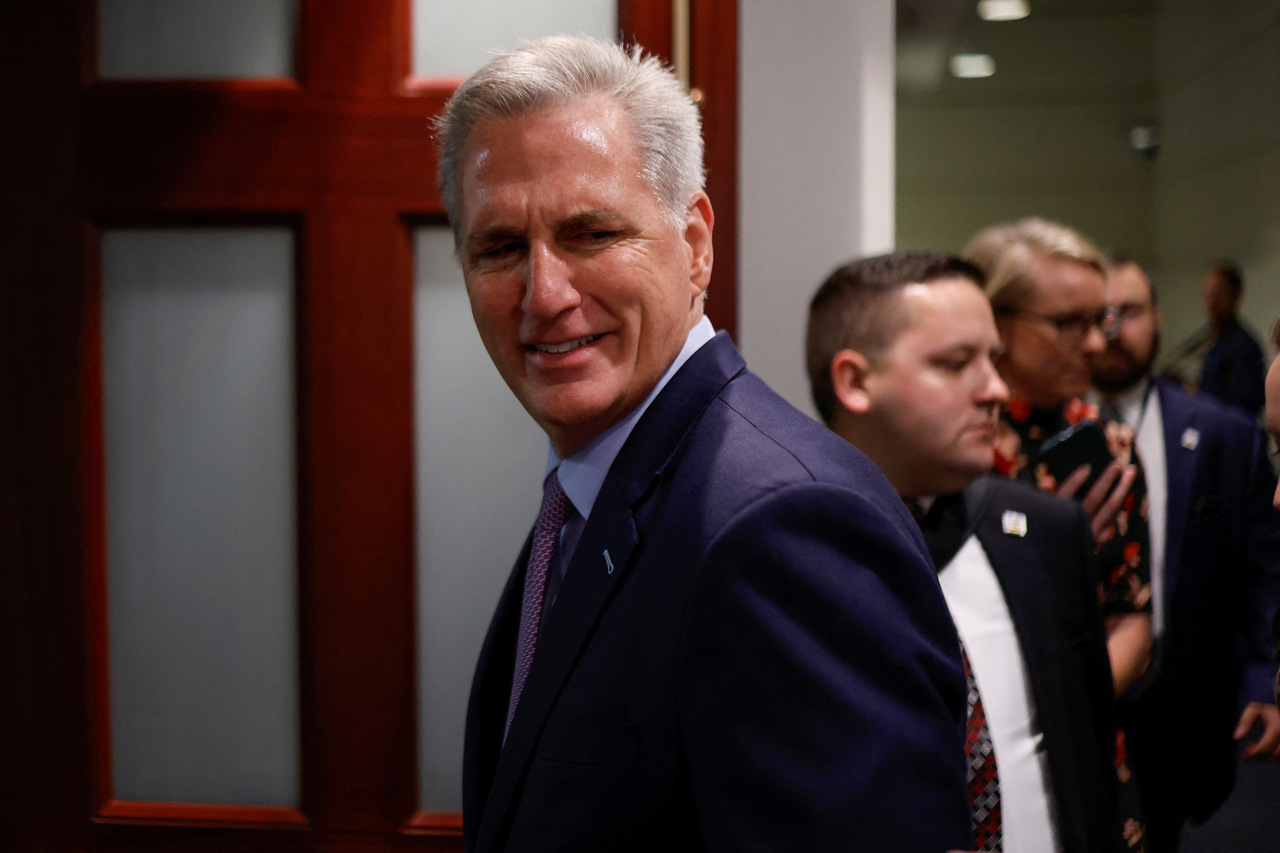McCarthy Ousted as Speaker of the U.S. House of Representatives
On 3 October, the U.S. House of Representatives voted 216 to 210 (all of the Democrats and eight far-right Republicans) to remove Republican Kevin McCarthy as Speaker of the House. This is the first time in U.S. history that the position has been vacated and will result in the temporary paralysis of the House and the legislative work of the entire Congress. It also highlights a worse internal situation in the Republican Party and limits the prospect of bipartisan cooperation in the short term.
 JONATHAN ERNST / Reuters / Forum
JONATHAN ERNST / Reuters / Forum
How did McCarthy become Speaker?
The election of a new Speaker of the House of Representatives in January, after the start of the new term of Congress, succeeded only on the 15th vote. Kevin McCarthy, an ally of Donald Trump during and since his presidency, eventually won with the required number of representatives by agreeing to make numerous concessions to the far-right Republicans who had opposed his candidacy from the beginning and accused him of not being conservate enough. Even then, McCarthy did not even receive the full support of his party, as six Republicans abstained. One of the concessions he agreed to was to allow any member of the House of Representatives to bring a motion to vacate the speakership.
Why was McCarthy ousted?
The Speaker’s dismissal is the result of opposition from a small group of far-right Republicans who objected to the bipartisan agreement and adoption of a budget continuing resolution (CR) by Congress on 30 September. It was needed to avoid a shutdown of the federal government in the absence of an agreement between the House of Representatives and the Senate on spending bills for fiscal year 2024. Among those dissatisfied with the CR’s adoption was Republican Matt Gaetz (of Florida), who became the face of the far-right opposition to McCarthy, and it was he who formally filed the motion to vacate. He and seven other Republicans voted for the measure. Democrats present at the vote also supported it, partly because McCarthy blamed them (even after the CR had passed) for seeking to shut down the government. Other reasons included McCarthy’s formal initiation of impeachment proceedings against President Joe Biden in September. By supporting the motion to vacate, Democrats are seeking to force the House Republicans to elect a more moderate speaker who will try for bipartisan compromises while ignoring the extreme proposals from their own party.
How does ousting McCarthy affect the Republican Party’s internal situation?
McCarthy has officially announced that he will not run for re-election as Speaker. The actions of the small group of Republicans that led to his dismissal are deepening divisions within the party and mainly concern the distancing of its far-right members—who are closely linked to Trump—from the centre of the party, which remains ready for some compromise with the Democrats. In the short term, this will make it more difficult for Republicans to cooperate and reach consensus within the party. However, this small group’s possible rise to prominence is not a foregone conclusion and largely depends on the choice of the next Speaker. Possible scenarios included selecting either a far-right candidate or a more centrist Republican who can count on the support of some Democrats while ignoring the extremists. In the short term, the vote by all House Democratic Party members present that day to oust McCarthy may make it more difficult for moderates from either party to cooperate.
What consequences does McCarthy’s dismissal have for the work of Congress?
The interim speaker, empowered to maintain the continuity of legislative work, theoretically has all the competences associated with the office he holds, but in practice he does not have a political position that allows him to conduct political initiatives or develop bipartisan consensus. Republican Patrick McHenry, who was named as interim Speaker as needed by McCarthy in January, decided to suspend the work of the House of Representatives for a week and set the vote to elect the Speaker for 11 October. The difficulties that accompanied McCarthy’s election in January and the lack of clear leadership of the House Republicans may make it difficult to efficiently appoint a new Speaker. This may result in prolonged legislative paralysis, including the negotiations of spending bills (the latest CR extended the deadline for the budget measures to 17 November). It also threatens the quick adoption of funds to support Ukraine, which the Senate planned to vote on separately because they were not included in the CR. The amount of agreed aid for Ukraine probably will be closer to the Biden administration's original request to Congress—$24 billion—than the limited amount that was to be included in the CR—$6 billion.




